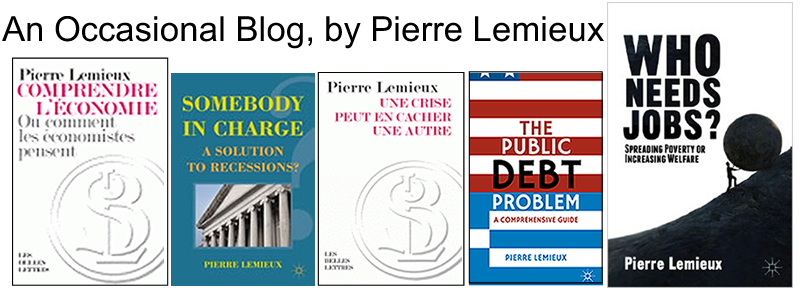James Mill (1773–1836) was a Scottish economist, philosopher, and journalist. He was the father of an even more famous figure of the 19th century, economist and philosopher John Stuart Mill. Like other classical economists, James was a defender of free trade. His 1808 pamphlet Commerce Defended answers many of today’s arguments for protectionism.
The subtitle of the book indicates that he was criticizing protectionists of his time: An Argument by Which Mr. Spence, Mr. Cobbett, and Others Have Attempted to Prove that Commerce is Not a Source of National Wealth. By commerce, Mill means international trade. The book especially targets William Spence, an entomologist and amateur economist who, the year before, had published a book titled Britain Independent of Commerce: Or Proofs Deduced from an Investigation into the True Causes of the Wealth of Nations: That our Riches, Prosperity, and Power, are Derived from Sources Inherent in Ourselves, and Would Not Be Affected, even though Our Commerce were Annihilated.
The benefit of international trade is the major point of Commerce Defended. But Mill first put commerce in its right place: it is in many ways more important than its opponents have argued, but not as important as some thought. It is not worth waging wars in order to increase commerce, which is just one cause of productivity and wealth.
For a non-economist, Spence’s argument against imports may have looked serious: “for whatever a nation purchases in a foreign market, it gives an adequate value, either in money or in other goods”; thus imports create no net wealth. Spence argued that the loss created by imports exactly cancels the gain from exports. As a reply, Mill proposed an early version of the theory of comparative advantage that his economist friend David Ricardo was to develop later: imports are valuable because they cost less than if they were produced at home. These imports are purchased with (at the cost of) fewer domestic goods.
James Mill comes close to suggesting that exports are useful because they allow the purchase of imports. Later, in his 1821 Elements of Political Economy, he will properly demonstrate that, contrary to what the mercantilists thought, imports are the benefits, exports the cost. Yet, Commerce Defended already expresses well the idea that international trade produces gains because countries specialize in the production of what they are most efficient at, and import at a bargain price what they are less efficient at producing, which is the principle of comparative advantage.
James Mill saw clearly a central point: the benefits of international trade are nothing but the international equivalent of the benefits of internal trade. He wrote:
As the same country is rendered the richer by the trade of one province with another . . . the same beautiful train of consequences is observable in the world at large, that great empire, of which the different kingdoms and tribes of men may be regarded as the provinces.
Mill criticized Spence on another crucial issue. Spence had claimed that consumption might be too low for all production to be purchased, that underconsumption, or equivalently overproduction, is a danger. Mill argued overproduction is impossible, as Jean-Baptiste Say had shown just a few years before him. The basic idea is simple: since all incomes come from production, they necessarily and exactly cover the purchasing power needed to buy everything that is produced. Money that is not consumed is saved and invested in capital goods (materials, machines, and such). So everything that is produced is purchased either for consumption or for investment purposes. “The demand of a nation,” Mill wrote, “is always equal to the produce of a nation,” because “its power of purchasing” is “the extent undoubtedly of its annual produce. “The extent of its demand therefore and the extent of its supply are always exactly commensurate.”
Thus, there can’t be general underconsumption:
Whatever be the additional quantity of goods therefore which is at any time created in any country, an additional power of purchasing, exactly equivalent, is at the same instant created.
One implication follows, which destroys the mercantilist obsession with exports. International trade is not useful as “a vent for the produce of the industry of the country,” but as an efficient way to exchange products according to comparative advantage. Trade is important, Mill argued, but not for the reasons mercantilists thought.
Commerce Defended argues forcibly against the intuitions of Spence, who, one hopes, must have known entomology better than he understood nascent economics. Of course, economic ignorance could be more easily forgiven at that time than today. Yet, David Hume, Adam Smith, and Jean-Baptiste Say had already proven mercantilism wrong, although not always as neatly as James Mill.
